A refrigerator in the kitchen is one of the most essential household appliances. He requires careful attention and care, does not tolerate negligence. Periodic general cleaning will help get rid of odors and preserve food. But how and with what to wash it correctly? How to quickly wipe away old traces of fat? How to clean up after defrosting? We will answer these and many other questions in this article.

Causes of odors
The reasons for the appearance of unpleasant odors are different. In the freezer, stale food can be a source of odor, as well as their presence when the unit is turned off, broken.
Attention! Earned on our website kitchen designer. You can familiarize yourself with it and design your dream kitchen for free! May also come in handy wardrobes designer.
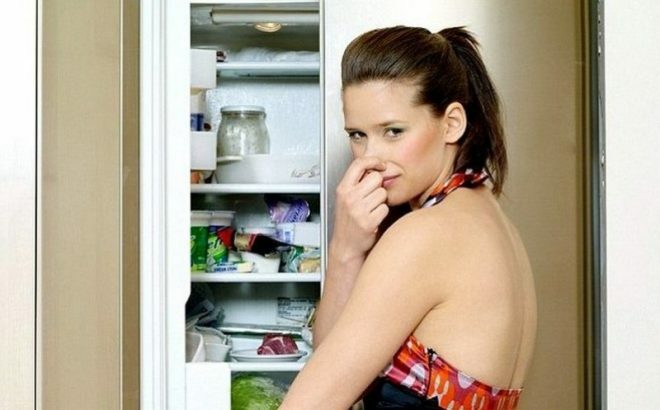
Foreign odors appear in the refrigerator due to improper storage of food or untimely cleaning inside it. The smell can come from:
- from perishable products, closed leaks;
- if the switched off refrigerator is left for a long time with the door closed;
- from the back wall, the drainage system is clogged.
The sequence of the correct quick cleaning of the refrigerator inside from fat
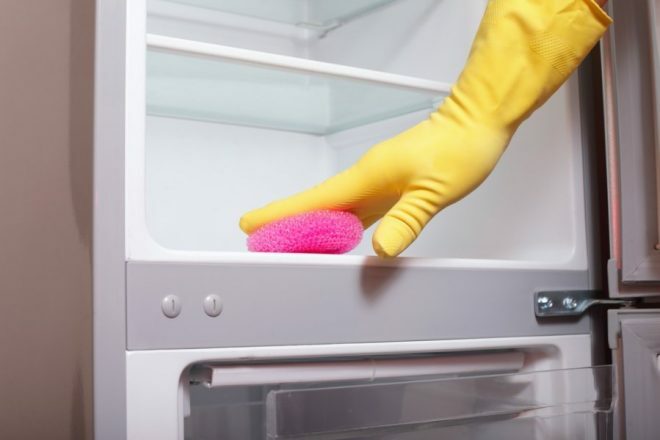
Before cleaning, the refrigerator is disconnected from the power supply for defrosting. Then everything is done in order:
- All products are taken out and subjected to a thorough examination. Spoiled, expired, old and all products that seem unusable at first glance are removed. Better safe than getting food poisoning.
- All removable parts are removed: shelves, grates, containers. Contaminated parts are soaked in a cleaning solution with ammonia (proportion 1: 5). No abrasives are used, only a soft sponge. Toothpaste may work as a light abrasive.
- It is necessary to wash the inner surface without the use of chemicals. It is best to use a soda solution. Two tablespoons of baking soda dissolve in ¼ glass of warm water.
- All washed, dried shelves are returned to their place. Internal surfaces are wiped with a clean wet cloth, then dry. The sealing gum can be cleaned well with an old toothbrush with non-aggressive detergents. The outer doors are also thoroughly cleaned.
- In the refrigerator, the doors remain open for ventilation and final drying.
- Be sure to remove dust from the grill on the back wall with a vacuum cleaner or brush.
- All products are returned to the shelves, glass and metal cans are wiped from condensation and dirt. The refrigerator is connected to the network.
How to prevent fridge odors
To eliminate existing odors and prevent them from occurring, the following solutions and food substances are used:
- Walls and shelves are wiped a solution of vinegar and water in equal proportions. A cotton wool soaked in solution is left for several hours.
- Fits in the refrigerator soda solution or just soda in an open container.
- The walls are rubbing ammonia and aired for a day.
- Used pounded Activated carbon.
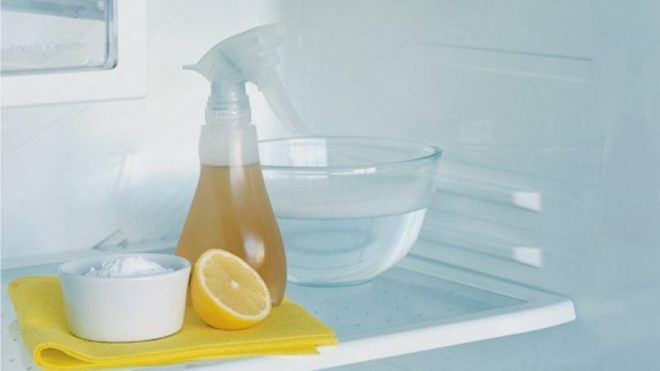
From foodstuffs to eliminate odors, you can use:
- Lemon. Wipe the inner surfaces with a cloth with a few drops of lemon juice. The sliced lemon is placed in an open dish for several days.
- Used sliced black bread in an empty working refrigerator for 8-10 hours.
- Applicable rice as odor absorber.
- Rubbed inside bulb or a clove of garlic. Airing for 12 hours.
- A good result is achieved when using seasonings: cloves, turmeric. Herbs: tarragon, basil, thyme, celery.
- Orange peels able to eliminate odor.
- Absorbs an unpleasant "aroma" sugar or saltplaced in containers on the unit shelves.
- Pieces of cheeseleft in the refrigerator also deal with odors.
- Absorbs odors coffee freshly ground.
- In a container with fruits and vegetables, it helps to fight wrinkled odors paper bag.
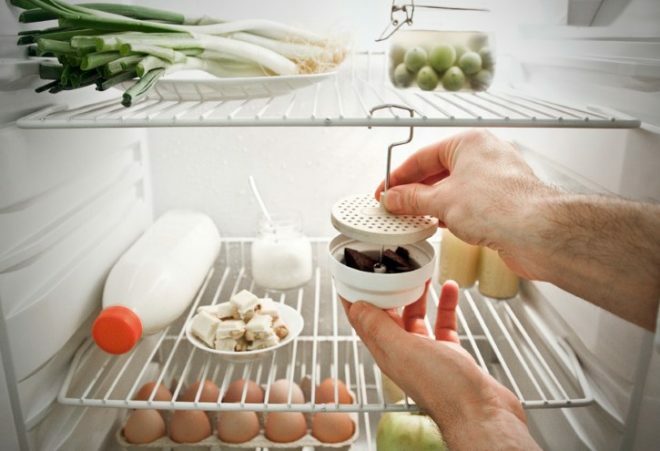
Food storage rules
Storing food in the refrigerator requires certain rules. Internal chambers should be filled optimally, not overloaded. The air between the foods must be constantly circulated so that they are evenly cooled.
Fresh and clean food is frozen. It is best to place each type of product in a plastic bag or container. It is good to use vacuum packaging, in which they last much longer than in conventional containers.
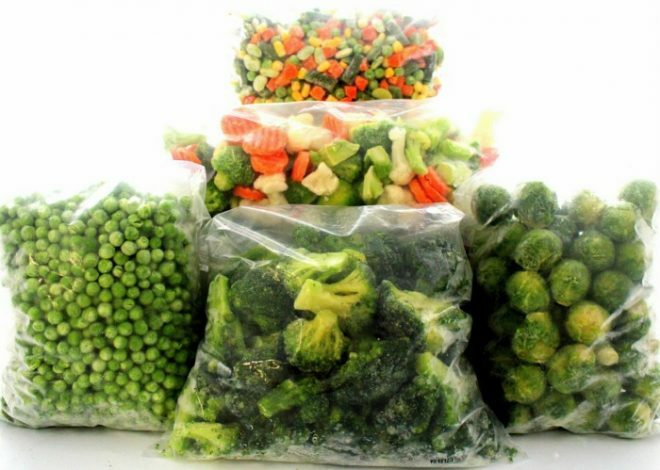
Products that strongly absorb odors, such as dairy products, must be kept closed. Fish and meat are wrapped in cellophane to prevent chapping and drying out. They are stored near the freezer on a pallet.
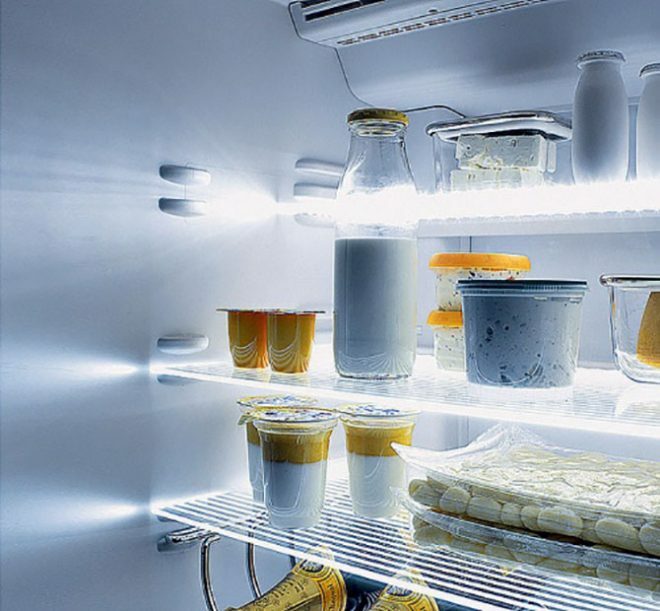
Eggs and dairy products are stored at a temperature of 3-6 degrees, usually their place on the door. Perishable food such as baked goods, cakes should be stored at temperatures up to +1 degrees. Baking is covered with a cloth or gauze to allow air to enter.
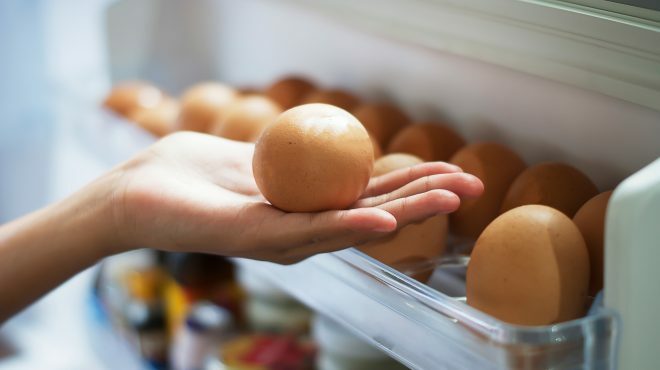
Storing vegetables and fruits is carried out in closed containers at temperatures from 3 to 7 °. It is best not to store bananas in the refrigerator. The berries are kept unwashed and sealed.
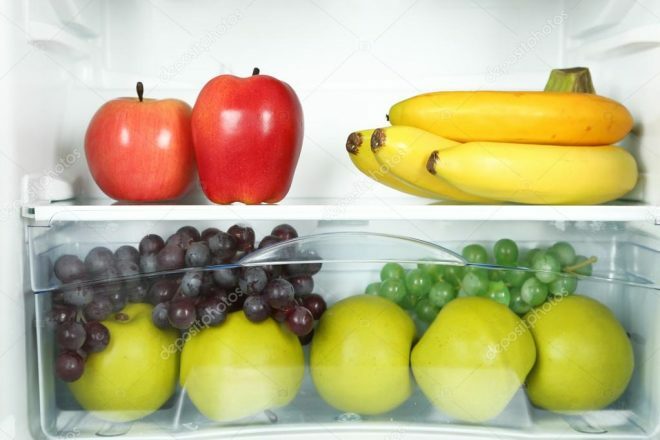
Once a week, the unit is wiped inside and out. An audit is being made among the products. The refrigerator is thoroughly cleaned monthly.
Cleaning and defrosting the unit with the "Know Frost" system
Refrigeration units with the Know Frost system defrost automatically. Their temperature regime is regulated in the operating mode. The following types of defrost are available:
- Windy - the evaporator is located behind the chamber wall at the back. The cooled air is directed by the fan to the evaporator, touching it, is converted into cold condensate and enters the walls from the outside. Instead, a portion of cold air enters the freezer. The motor turns off for a short time, the heater turns on, the condensate evaporates. Then the motor starts to work and everything is repeated.
- Drip - this is when the flat evaporator is located on the back wall of the refrigerator compartment. Frost settles on the working compressor, it melts when it is turned off. The resulting moisture flows into a container behind the chamber. There it evaporates when exposed to heat.
You still need to turn off and defrost the refrigerator with this system. Fully defrosting takes place after 24 hours. It is necessary to wash the unit after defrosting, as foreign odors, smudges and stains from food may appear. The sequence of cleaning such a refrigerator, like a regular one.
How to wash, remove and bleach yellowness from plastic and traces of glue from the outside of the stickers?
Plastic parts that have yellowed over time can be washed and bleached. The surface is first degreased. Can be used whitenessby soaking the parts that are being removed. The outer surface is wiped. Used for cleaning solution of soda and washing powder: dissolves one tablespoon of the specified ingredients in a liter of water.
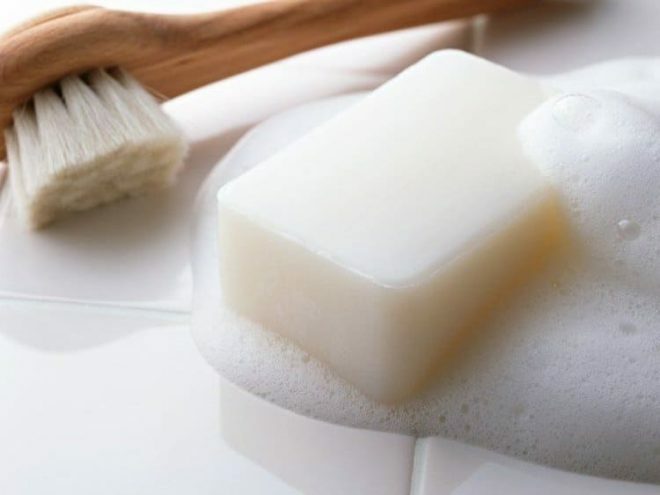
Has proven itself in the fight against yellowness hydrogen peroxide. You can also use products from the store - special wipes and aerosols for plastic. To avoid scratching the plastic, a soft sponge is used.
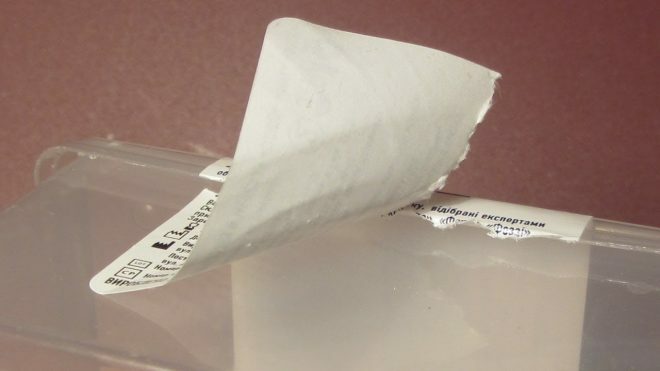
After purchasing a new refrigeration unit, it becomes necessary to clean the refrigerator door from advertising stickers or various colored stickers. Several methods are used:
- Via hot air household hair dryer. The sticker is wetted with detergent. Without letting dry, heated by air, removed with a soft sponge. The procedure is repeated if necessary.
- Eraser. First moisten with detergent, give time to dry, rub off with a school eraser. It is permissible to moisten not with water, but with a nail polish remover.
- Store drugs for removing. The disadvantage is that the liquid is packaged in large containers.
- Vegetable oil soak a cotton pad and apply to the sticker until softened. Then remove with a soft cloth. Oil traces are wiped off with a detergent.
- Scotch. A small piece of scotch tape is glued to the label and comes off with a sharp movement. It is done several times.
- Alcohol, vinegar, antistatic. These liquids also help remove labels and glue.
Video: general defrosting and cleaning the refrigerator
Periodic wet cleaning of the refrigerator, checking products for expiration dates and rejecting spoiled ones, correct storage, careful operation will help it to do without repairs for a long time and work without interruption.
average rating 0 / 5. Number of ratings: 0
No ratings yet. Be the first to rate.


